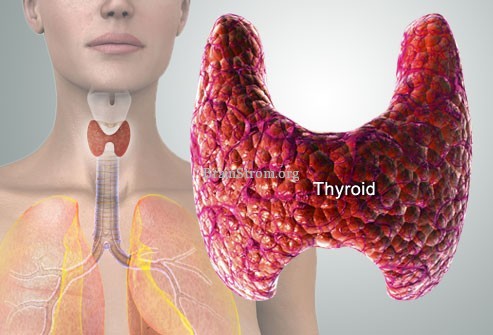Some people over 60 with an underactive thyroid have few, if any, classic symptoms of hypothyroidism, while others do experience the same symptoms younger people do. Still others have symptoms that are not typical at all, making diagnosis even more difficult. Any of the following, alone or in combination, can be symptoms of hypothyroidism in older people.
- Unexplained high cholesterol. High cholesterol is sometimes the only evidence of an under active thyroid in an older person, meaning the problem might be diagnosed as a cholesterol disorder rather than hypothyroidism. Because the sign may stand alone, high cholesterol warrants a thyroid evaluation.
- Heart failure. Reduced blood volume, weaker contractions of the heart muscle, and a slower heart rate — all caused by low thyroid hormone levels — may contribute to heart failure, a serious condition that results from decreased blood flow to muscles and organs throughout the body. The ineffective pumping also causes blood to back up in the veins that return blood to the heart. Blood backs up all the way into the lungs, which causes them to become congested with fluid. Symptoms of heart failure include breathlessness, swelling in the ankles, weakness, and fatigue.
- Bowel movement changes. An older person with hypothyroidism might have constipation because of decreased movement of stool through the bowels. Less commonly, an older person will have frequent bouts of diarrhea, which is more typically a symptom of hyperthyroidism. However, this is rare and should prompt investigation of other causes of diarrhea or malabsorption, such as celiac (also known as sprue), which is also common in patients with autoimmune thyroid disease.
- Joint or muscle pain. Vague joint pain is a classic symptom of hypothyroidism. It sometimes is the only symptom of hypothyroidism in an older patient, although many experience an overall muscular aching, particularly in large muscle groups.
- Psychiatric problems. As with younger people, clinical depression is common among older people with an underactive thyroid. The difference is that in older people it can be the only symptom. An older person could also develop psychosis and either exhibit delusional behavior or suffer from hallucinations.
- Dementia. Debilitating memory loss — often, but not always, accompanied by depression or some kind of psychosis — can also occur as a lone symptom. If you or a loved one is being evaluated for dementia, be sure the doctor has assessed thyroid function.
- Problems with balance. Abnormalities in the cerebellum at the back of the brain that occur in hypothyroidism may lead to walking problems in older people.
Thanks for installing the Bottom of every post plugin by Corey Salzano. Contact me if you need custom WordPress plugins or website design.

